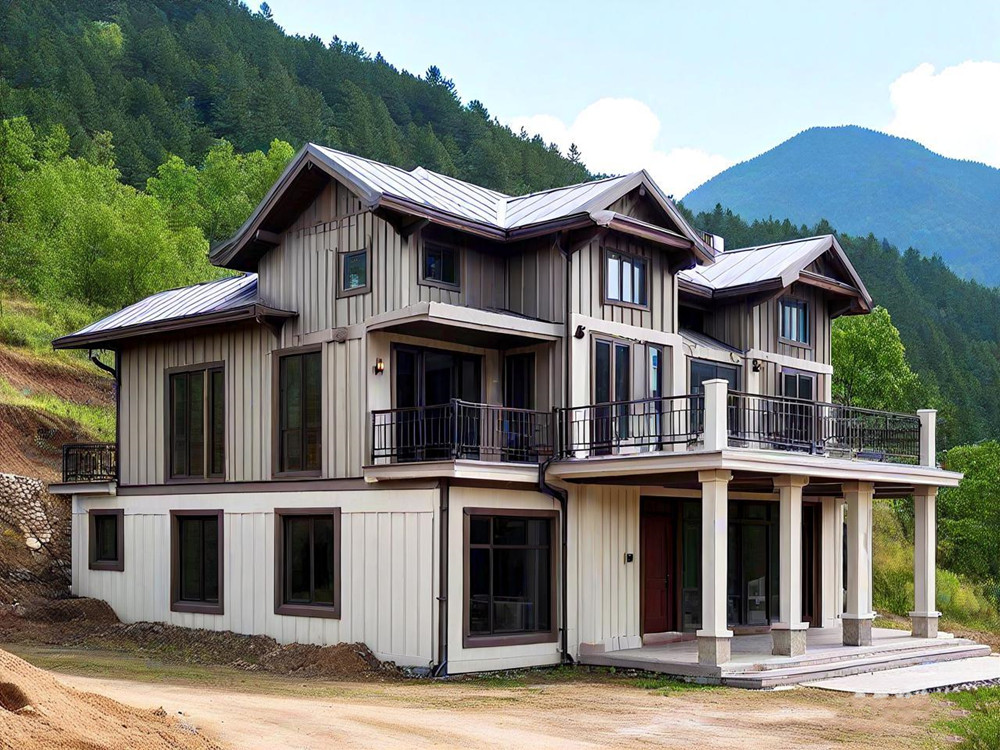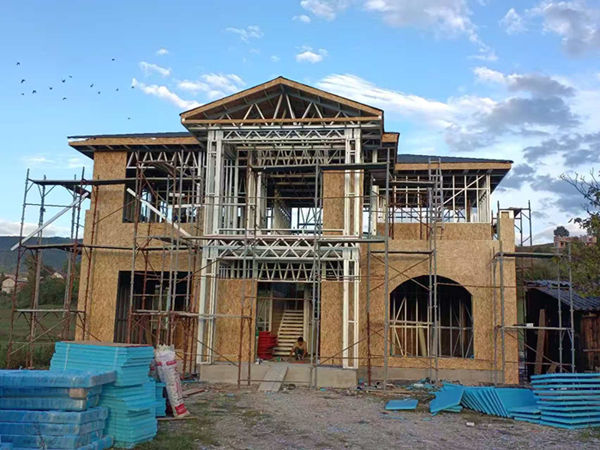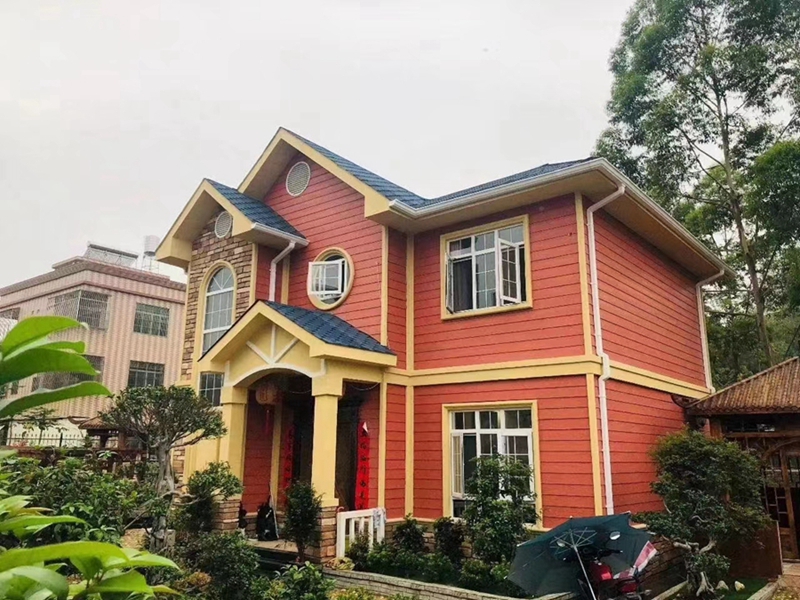In recent years, light steel villas have become a popular choice in the housing market due to their unique structural advantages and efficient construction methods. Especially in mountainous areas, where geographical conditions can be complex and construction is challenging, light steel villas present a promising solution. But is it feasible to build a light steel villa in the mountains? This article will analyze the feasibility of constructing light steel villas in mountainous areas and explore their advantages from multiple perspectives.

1. Characteristics of Light Steel Villas
Light steel villas use a steel structure as the main load-bearing system, which offers significant advantages such as being lightweight, high-strength, and corrosion-resistant. The basic structure consists of light steel frames, steel plates, and insulation materials, providing excellent seismic resistance and wind resistance. Compared to traditional brick-and-mortar structures, light steel villas perform more stably in natural disasters such as earthquakes and storms, making them particularly suitable for areas with harsh natural conditions, like mountainous regions.
(1)Lightweight, Suitable for Mountainous Terrain
Light steel villas are much lighter than traditional brick-and-mortar houses, making them particularly suitable for mountainous regions with irregular terrain and weak bearing capacity. Mountainous areas often require complex foundation work to support traditional brick-and-mortar structures. In contrast, the lightweight nature of light steel villas reduces the burden on the foundation, simplifying construction and lowering costs.
(2)High Strength and Seismic Performance
Light steel villas have high strength and excellent seismic performance due to the steel structure. Mountainous regions are often prone to earthquakes or other natural disasters like floods and mudslides. The steel structure of light steel villas allows them to withstand strong seismic activity, ensuring the safety of residents. Additionally, steel is highly corrosion-resistant and fire-resistant, further enhancing the stability of light steel villas under extreme weather conditions.

2. Advantages of Building Light Steel Villas in the Mountains
(1) Fast Construction, Saving Time and Cost
Construction in mountainous areas often faces challenges such as poor transportation infrastructure and long construction periods. Light steel villas are prefabricated in factories, with all the components produced off-site and then assembled on-site. This modular construction process significantly shortens the construction time, allowing the villa to be completed within a few months. This is particularly advantageous in mountainous areas where transportation is challenging and reduces both construction time and costs.
(2)Energy-Efficient and Environmentally Friendly
With growing awareness of environmental protection, more and more construction projects emphasize green building practices and energy efficiency. Light steel villas use recyclable materials, meeting green building standards. Additionally, the insulation materials used in light steel villas provide excellent thermal insulation, keeping the interior cool in summer and warm in winter, thus reducing energy consumption. This energy-efficient feature is particularly beneficial in mountainous areas where winters are cold, and summers are hot.
(3)Adaptability to Harsh Environments and Strong Wind/Snow Resistance
Mountainous areas are characterized by complex climates, including strong winds, heavy rainfall, and, in some regions, heavy snow. Light steel villas have excellent wind resistance and corrosion resistance, making them ideal for such harsh weather. In snow-prone mountainous regions, the strong steel structure of light steel villas avoids the common issue of roof collapse that can occur with traditional buildings, ensuring the safety of the house.
(4)Flexibility in Design, Suitable for Customization
Light steel villas offer great flexibility in design, which is especially important in mountainous regions where the terrain can be varied and land area may be limited. Traditional buildings often face constraints due to irregular land shapes. However, the design of light steel villas can be adapted to the specific site conditions, creating unique housing solutions. Moreover, the modular design of light steel villas allows for customization of floor plans, making them highly adaptable to different needs, which is ideal for the complex terrain of mountainous areas.

3. Challenges and Solutions for Building Light Steel Villas in the Mountains
While there are many advantages to building light steel villas in mountainous areas, there are also some challenges to consider. Below are some common challenges and potential solutions:
(1)Transportation and Material Delivery Issues
Due to the narrow roads and poor transportation infrastructure in mountainous areas, transporting materials for light steel villas can be challenging. To address this issue, materials can be transported in batches, or alternative transportation methods such as drones or small vehicles designed for rough terrain can be used. Additionally, pre-fabricated components can be compactly designed to minimize space requirements during transport.
(2) Funding and Budget Constraints
While the cost of building a light steel villa is generally lower than traditional construction, building in mountainous regions may incur additional costs, such as transportation, foundation work, and adapting to the terrain. To overcome this, it is essential to plan a detailed budget before beginning the project, ensuring that funds are used efficiently.
(3)Skilled Labor Requirements
Light steel villa construction requires specialized skills. In mountainous areas, skilled labor may be scarce. To address this, training programs can be implemented for local workers, or remote guidance can be provided by experienced professionals to ensure the quality of the construction.
4. Conclusion
In conclusion, building a light steel villa in mountainous regions is highly feasible and offers numerous advantages that traditional construction methods cannot match. The lightweight structure, fast construction speed, excellent seismic and wind resistance, and energy efficiency make light steel villas a perfect fit for the mountainous terrain. Despite some challenges, such as transportation and labor availability, these can be overcome with proper planning and modern technologies. As the technology for light steel villa construction continues to advance, the widespread application of this type of housing in mountainous areas is expected to increase, providing a safer, more efficient, and environmentally friendly housing solution for these unique regions.